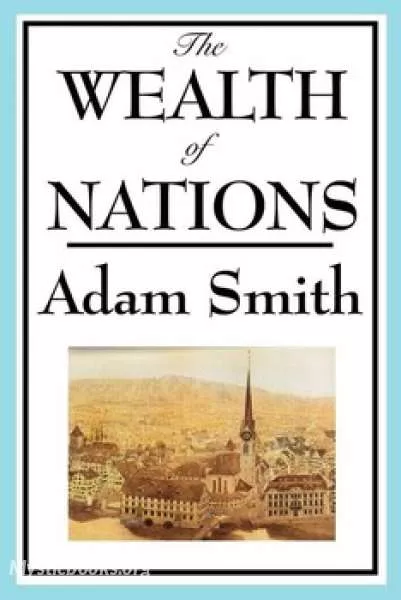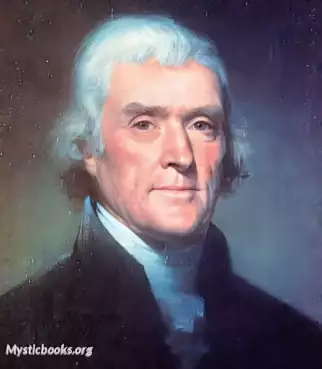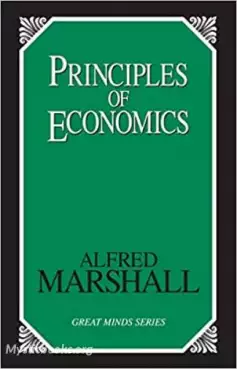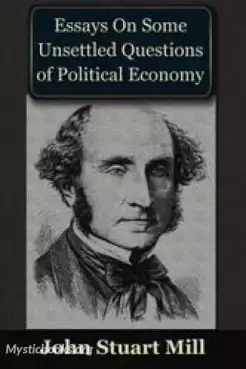
The Wealth of Nations, Book 4
by Adam Smith
'The Wealth of Nations, Book 4' Summary
Book IV: Of Systems of political Economy
Smith vigorously attacked the antiquated government restrictions he thought hindered industrial expansion. In fact, he attacked most forms of government interference in the economic process, including tariffs, arguing that this creates inefficiency and high prices in the long run. It is believed that this theory influenced government legislation in later years, especially during the 19th century.
Smith advocated a government that was active in sectors other than the economy. He advocated public education for poor adults, a judiciary, and a standing army—institutional systems not directly profitable for private industries.
Of the Principle of the Commercial or Mercantile System: The book has sometimes been described as a critique of mercantilism and a synthesis of the emerging economic thinking of Smith's time. Specifically, The Wealth of Nations attacks, inter alia, two major tenets of mercantilism:
- The idea that protectionist tariffs serve the economic interests of a nation (or indeed any purpose whatsoever) and
- The idea that large reserves of gold bullion or other precious metals are necessary for a country's economic success. This critique of mercantilism was later used by David Ricardo when he laid out his Theory of Comparative Advantage.
Of Restraints upon the Importation: Chapter 2's full title is "Of Restraints upon the Importation from Foreign Countries of such Goods as can be Produced at Home". The "invisible hand" is a frequently referenced theme from the book, although it is specifically mentioned only once.
"As every individual, therefore, endeavours as much as he can both to employ his capital in the support of domestic industry, and so to direct that industry that its produce may be of the greatest value; every individual necessarily labours to render the annual revenue of the society as great as he can. He generally, indeed, neither intends to promote the public interest, nor knows how much he is promoting it. By preferring the support of domestic to that of foreign industry, he intends only his own security; and by directing that industry in such a manner as its produce may be of the greatest value, he intends only his own gain, and he is in this, as in many other cases, led by an invisible hand to promote an end which was no part of his intention. Nor is it always the worse for the society that it was no part of it. By pursuing his own interest he frequently promotes that of the society more effectually than when he really intends to promote it." (Book 4, Chapter 2)
The metaphor of the "invisible hand" has been widely used out of context. In the passage above Smith is referring to "the support of domestic industry" and contrasting that support with the importation of goods. Neoclassical economic theory has expanded the metaphor beyond the domestic/foreign manufacture argument to encompass nearly all aspects of economics.
Of the extraordinary Restraints: Chapter 3's long title is "Of the extraordinary Restraints upon the Importation of Goods of almost all Kinds, from those Countries with which the Balance is supposed to be Disadvantageous".
Book Details
Language
EnglishOriginal Language
EnglishPublished In
1776Authors

Adam Smith
Scotland
Adam Smith was a Scottish economist, philosopher as well as a moral philosopher, a pioneer of political economy, and a key figure during the Scottish Enlightenment, also known as ''The Father of Econo...
Books by Adam SmithDownload eBooks
Listen/Download Audiobook
- Select Speed
Related books

Principles of Economics, Book 1: Preliminary Survey by Alfred Marshall
Principles of Economics is a leading political economy or economics textbook of Alfred Marshall (1842–1924), first published in 1890. It ran into many...

Other People's Money by Louis D. Brandeis
Other People's Money And How the Bankers Use It is a collection of essays written by Louis Brandeis first published as a book in 1914, and reissued in...

Idiot (Part 01 and 02) by Fyodor Dostoyevsky
This two-part novel follows the story of Prince Myshkin, a young man who returns to Russia after spending several years in a Swiss sanatorium for epil...

In Harmony with Nature by Matthew Arnold
Matthew Arnold's *In Harmony with Nature* reflects the poet's engagement with the natural world and its role in human life. This collection of poems d...

metamorfosis by Franz Kafka
La Metamorfosis, escrita por Franz Kafka en 1912, explora la transformación repentina de Gregorio Samsa en un insecto gigante. Esta transformación no...

Death by Maurice Maeterlinck
Maurice Maeterlinck's 'Death' delves into the profound and universal human fear of death. Examining the cultural and societal roots of this anxiety, M...

Essays on Some Unsettled Questions of Political Economy by John Stuart Mill
Essays on Some Unsettled Questions of Political Economy (1844) is a treatise on political economics by John Stuart Mill. Walras' law, a principle in g...

Letters to a Daughter and A Little Sermon to School Girls by Helen Ekin Starrett
Helen Ekin Starrett, journalist, mother of two daughters, grandmother of seven granddaughters and teacher to many young girls at the Starrett School f...

Kandid oder Die beste Welt by Voltaire
Candide, ou l'Optimisme is a satirical novel by Voltaire, first published in 1759. The novel follows the adventures of Candide, a young man who is tau...

dernier jour d'un condamné by Victor Hugo
Le dernier jour d'un condamné est un roman poignant qui explore les pensées et les sentiments d'un homme condamné à mort pendant sa dernière journée....
Reviews for The Wealth of Nations, Book 4
No reviews posted or approved, yet...